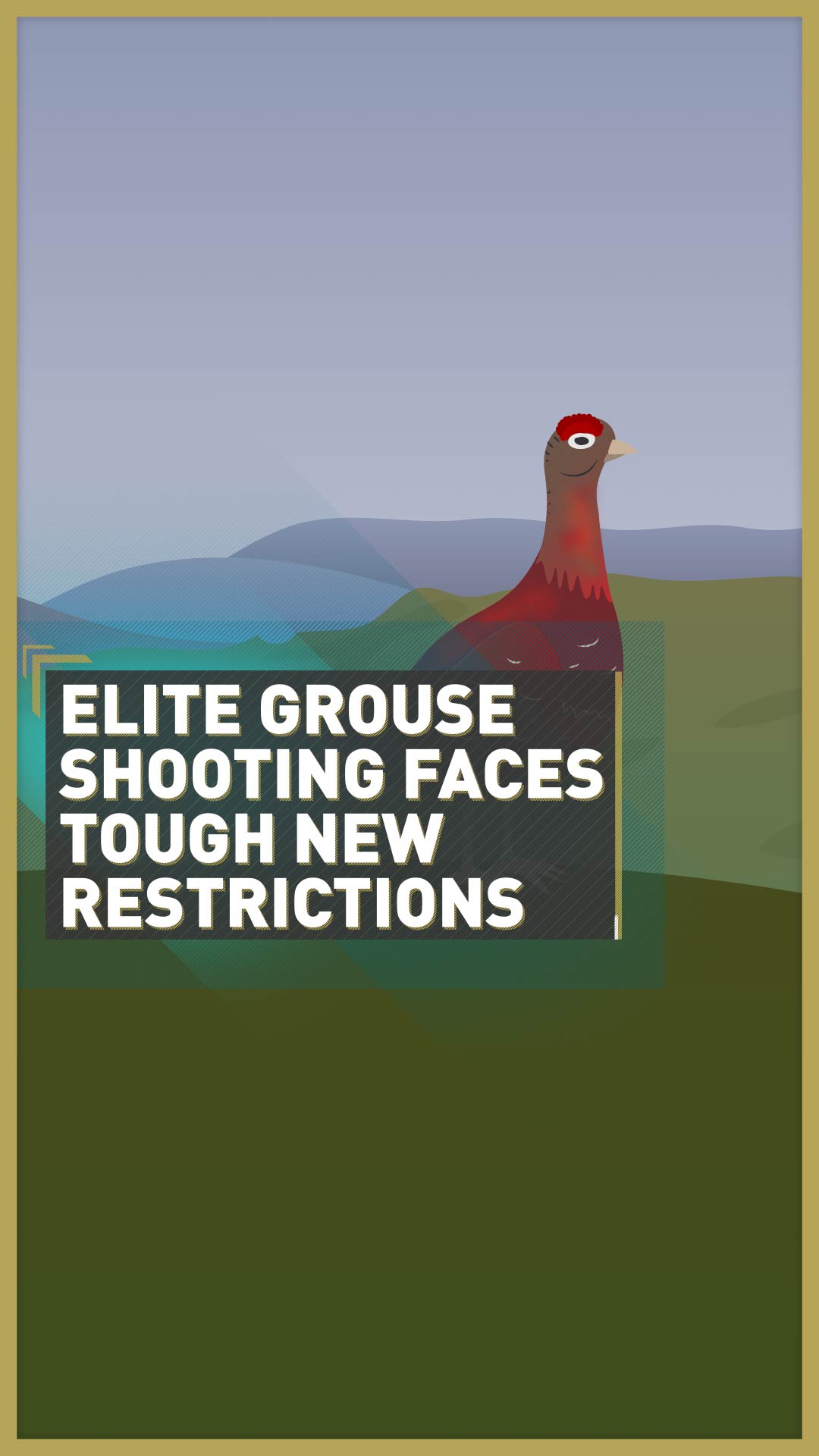01:18

The Scottish government is set to bring in licenses for grouse-shooting estates, in an effort to make them more ecologically accountable, angering landowners and gamekeepers who believe it could destroy the industry.
The licensing plans, which would come into force should the Scottish National Party (SNP) maintain a majority in the 2021 parliamentary elections, comes amid growing opposition to grouse shooting from land reformers and animal rights advocates.
Mairi Gougeon, Scotland's rural affairs minister, brought forward the drafting of the legislation as she believed self-regulation of grouse moors was failing to stop the illegal persecution of raptors and environmental damage, respectively.

CLICK: THE MOVEMENT HOPING TO REDUCE OUR PURCHASE IMPULSES FOR THE GOOD OF THE PLANET
"The fact that raptor persecution continues in spite of all these measures suggests that, while regulation from within the grouse shooting industry can be an important factor in driving behavioral change, self-regulation alone will not be enough to end the illegal killing of raptors and further intervention is now required," she stated.
Grouse shooting has for centuries been an activity only available to the rich. Prices vary from estate to estate, participants, who are largely drawn from the British and global elites, can pay well over $1,000 per day to partake.
The grouse moors are some of the most intensely cultivated land in the UK. Gamekeepers regularly burn foliage, eradicating trees and grass, to provide young heather in which grouse can thrive. While predators and mountain hares – some of which are thought to be infected with dangerous ticks – are trapped and killed.

Hundreds of thousands of grouse are estimated to be killed each year in Scotland. /Phil Bird/VCG
Hundreds of thousands of grouse are estimated to be killed each year in Scotland. /Phil Bird/VCG
The government's announcement comes a year after the publication of the Weritty report, which it commissioned after a report by NatureScot found that a third of satellite-tagged golden eagles had disappeared suspiciously, many near the grouse moors.
Among the report's recommendations was that licensing should be introduced if "there is no marked improvement in the ecological sustainability of grouse moor management."
The bringing forward of licensing has angered those who partake in and rely on grouse shooting.
Shooting, gamekeeping and Scottish landowning lobbies issued a joint statement in response to the proposal, warning that the move would be a "seriously damaging blow to fragile rural communities," while noting that the government has not listened to the voice of some of our most fragile communities."
Their statement outlines that grouse estates are already "embracing many of the recommendations" of the Werrity report and that any further licensing would "engulf the sector in a blizzard of red tape that is unprecedented and out of all proportion."
Video animator: James Sandifer

